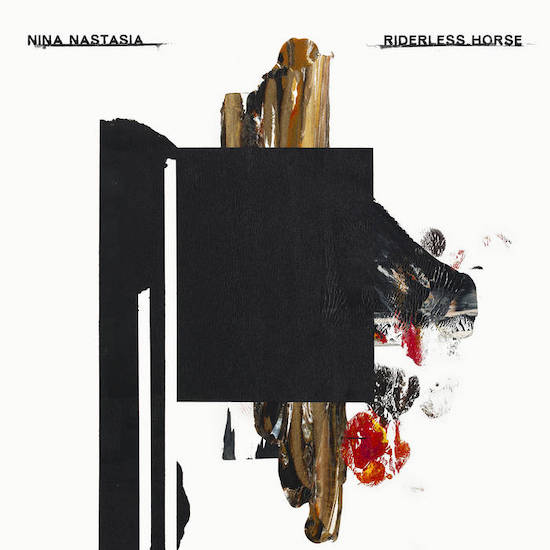For anyone following her career, word of a new Nina Nastasia album after twelve years of mysterious near-silence was cause for celebration. This joy, however, was soon quelled when one learned what she’d endured in order to accomplish it.
The facts are difficult but necessary to recount: Nastasia’s long-time partner and collaborator Kennan Gudjonsson was, it transpired, psychologically abusive and controlling to the point where Nastasia felt drained of the desire to write or create. Mentally unwell, Gudjonsson died by suicide the day after Nastasia left him to seek a better, healthier future for herself.
Given the painful, intimate subject matter it’s no surprise that this had to be a truly solo album. There are no drums or strings or singing saw; just unadorned acoustic guitar and voice. The results are barer even than 2000’s Dogs or her intentionally stripped-back collaboration with Jim White, You Follow Me.
Nastasia’s guitar patterns here are subtle yet surefooted, and despite the heavy subject matter her melodies skip like skimmed stones, each one sending out endless delicate ripples in their wake. The contrast between these easy cadences and the raw subject matter makes for a record that is difficult to unpack and often difficult to listen to despite its easy charm and immediate accessibility.
Riderless Horse is quietly redemptive rather than world-razingly cathartic, and despite all the mental and emotional hardship she’s survived, Nastasia remains even-handed and philosophical. She matter-of-factly pulls apart the frayed threads of a toxic partnership in a manner that is candid but never unkind, turning over the tedious nature of love in later life (“love is tiresome when you’re older / grief and madness make you colder”) or, with the diminutive, devastating ‘Ask Me’, the mutually-assured destruction of two people who know they are trapped in a cycle of pain and are yet unwilling or unable to escape it.
While capable of putting you through the emotional wringer, Nastasia’s previous albums never seemed as autobiographically heart-on-sleeve as many of her peers operating in the alt-folk singer-songwriter realm. Instead, she seemed to deal primarily in observational sketches: vignettes of doomed, sad, scared, hopeful people in the vein of Raymond Carver, Carson McCullers or Eudora Welty. Riderless Horse presents an immediate contrast by dint of its clear inward focus, and its bare-bones descriptions of both her own disintegrating relationship and its aftermath. Moreover, it also serves to shine a stark light on parts of her back catalogue, making certain sadnesses, or yearnings for escape, or glimpses of outlandish, unreasonable behaviour all the more poignant now that we know the wider context.
For all the psychic harm and trauma that he might have caused, Nastasia does not, in interview, downplay the impact Gudjonsson had on her music and her career. She notes that his unrealistic expectations served to prod, push, goad and bully her art in directions it might not otherwise have taken. But what we find here is that the absence of such a figure does absolutely nothing to diminish Nastasia’s craft, or storytelling, or the power of her music. While these songs may have gushed out rather than been endlessly edited and micromanaged, they are undeniably hers as much as anything that appeared on The Blackened Air or On Leaving. It’s as though, with this release, Nastasia has not only reclaimed her voice and her drive to create after so many emotionally-punishing years, but also her agency over her art as a whole.
Ultimately there is, deep down, a strange sense of joy to be found in all this despite all the sorrow: a hard-won sense of escape or release, as referenced by the ‘riderless horse’ of the title – or, indeed, the simple, soft pop of a bottle being uncorked that quietly opens the album.


